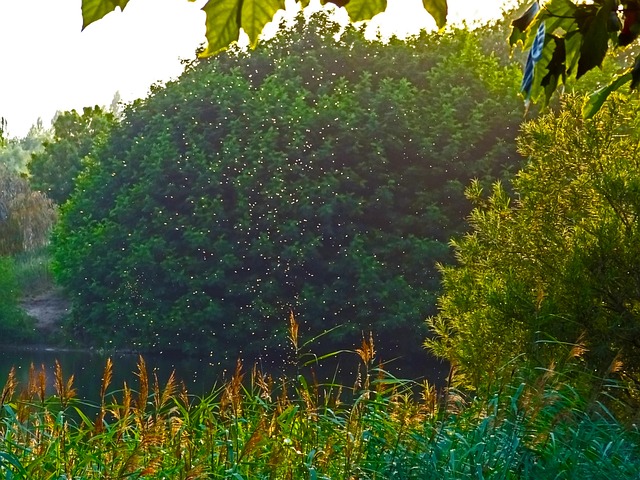In the wake of the Zika virus outbreak, killing mosquitoes that bear and spread the disease has become a priority across the nation. The Health Department in New York City, for example, is getting ready to address the sudden increase in mosquitoes as summer approaches.
States like New York and New Jersey have long used pesticides to get rid of these insects, but now that Zika has appeared, public health officials are rethinking strategies on getting rid of this new breed of mosquitoes.
In New Jersey, Gary Cardini, supervisor for the field team for Hudson County Mosquito Control, does his battle in prime mosquito dwellings such as marshes and woods. “You want to get them in the water before they’re flying,” he says. “In the water, they’re captive. You know where they are.”
Every spring, Cardini’s team checks pools of water for mosquito larvae and spreads larvicide that kills them when they eat it.
Jay Carma, deputy commissioner for disease control in New York City, says,
One of the most important strategies is to never fall behind when trying to control the Aedes mosquitoes.
Aedes is the species that carries Zika.
While the chances of these mosquitoes spreading around New York are low, the health department is taking precautions and is doubling the number of larvicide treatments for the wetlands this year, spraying six times instead of three.
It may not be enough to prevent Zika, however.
Greg Williams, superintendent of mosquito control for Hudson County, New Jersey, says the Zika mosquitoes are more likely to make their homes in “pet food dishes, children’s toys, tarps in people’s backyards, clogged gutters, boats, rain buckets.”
“Luckily, it doesn’t fly very far,” Williams says. “If you and your neighbors can keep your yards free of standing water, then you probably wouldn’t need any pesticides to get rid of that mosquito.”
Prevention is the biggest factor when it comes to making sure Zika doesn’t spread. Williams recommends that people “dump and drain” through a public education campaign, while keeping pesticides as an option. “Sometimes the mosquitoes are still just there for one reason or another, so the spraying is just a little extra added insurance.”
Laura Harrington, an entomologist at Cornell University whose work focuses on Aedes mosquitoes, says aerial spraying of pesticides over wetlands or bodies of water may be a waste of time and money, because the mosquitoes can live in spaces as small as a bottle of water. “We know a lot about the biology of these mosquitoes, and we know that they do not breed in those types of habitats,” she says.
While the US is at a relatively low risk for a Zika outbreak, Harrington does say she supports the use of pesticides if ever it comes to that. Studies have shown that pesticides can lower mosquito populations.
William Reisen, a retired entomologist from the University of California, Davis, co-authored a 2008 study that showed how pesticides reduced mosquitoes by some 75%, lowering the risk for mosquito-borne diseases to spread. There’s a catch to the Zika mosquitoes, however.
“The problem with the Aedes mosquitoes is that these are mostly day-active mosquitoes,” Reisen says. This means they aren’t around when pesticides are sprayed, which is usually dusk or at night.
This just means that health officials will have to keep coming up with new plans to combat and prevent these mosquitoes from doing any more harm.
























